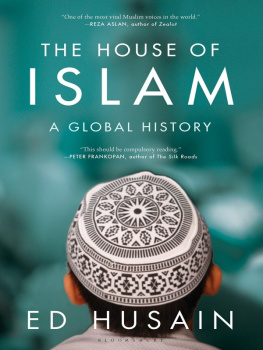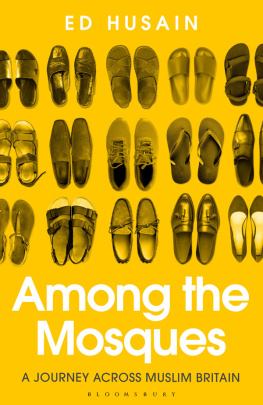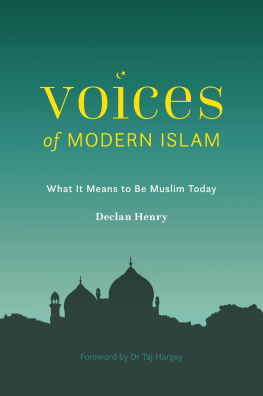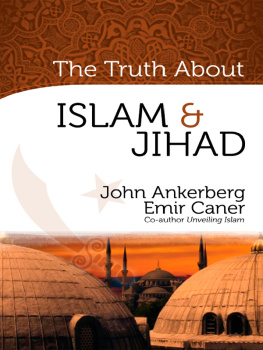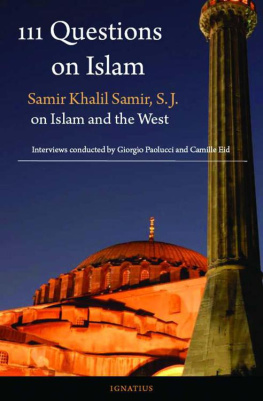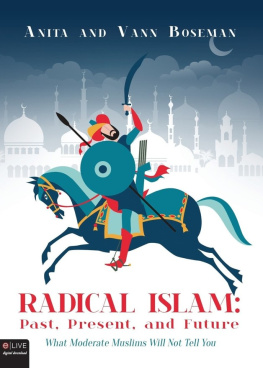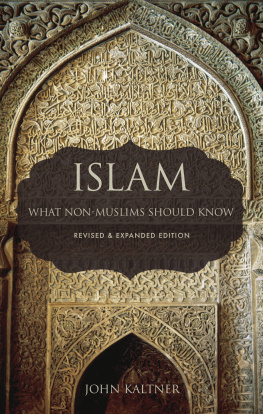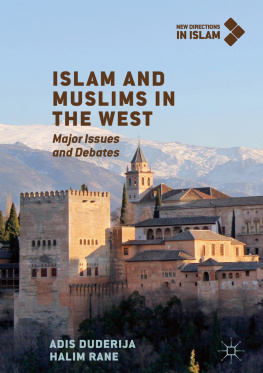Contents
Other Mental Disorders
Physical Ailments
Chapter One
Who Was Muhammad?
Your Lord has not forsaken you, nor does He hate you. The future will be better for you than the past. And soon your Lord will give you so that you will be content. Did He not find you an orphan and give you shelter? Did He not find you wandering and guide you? Did He not find you in need and enrich you? (Q. 93:3-8)
Let us begin with Muhammads story. Who was he and what were the circumstances that influenced his thinking? In this chapter we will briefly go through the salient points of the life of a man, whom over a billion people literally worship. Islam is Muhammadism. Muslims claim that they worship no one but Allah. Since Allah was Muhammads alter ego, in practice, its him whom they worship. Islam is the personality cult of one man. We will read his words as they were dictated in the Quran, claimed by him to be the words of God, and see him through the eyes of his companions and wives. We will take a look at how he rose from a derelict preacher to become the de facto ruler of Arabia in just a decade. We will focus on how he divided people in order to control them, how he instilled sedition, hate, and roused some to wage war against others. And, how he used raids, rape, torture, and assassinations to cast terror in the hearts of his victims and subdue them. We will learn about his genocides and his penchant for deception as a strategy, the very strategy used by Muslims today, to take over the world. By the time you finish reading this chapter, you will come to see that the terrorists are doing exactly what their prophet did.
The Birth and Childhood of Muhammad
In the year 570 A.D., in Mecca , Arabia, a widowed young woman named Amina, gave birth to a boy whom she called Muhammad. Though Muhammad was her only child, Amina gave him to a Bedouin woman, to be raised in the desert when he was only six months old.
Some wealthy Arab women hired wet nurses for their infants. This allowed them to have another child right away. More children meant higher status. However, that was not the case with Amina who was not wealthy and a widow with only one child to care for. Abdullah, Muhammads father, had died six months before his birth. Also, this practice was not really that common. Khadijah, the first wife of Muhammad, who was the wealthiest woman of Mecca, had three children from her previous two marriages and bore six more to Muhammad. She raised them all on her own.
Why would Amina give away her only child to be raised by someone else? She also did not breastfeed her infant. After his birth, Muhammad was given to Thueiba, a maid of his uncle Abu Lahab, (the same uncle whom Muhammad cursed in Sura 111) to be nursed. Why Amina did not nurse her child is not mentioned. All we can do is to speculate. Was she depressed? Did she think the child was an impediment to the possibility of remarriage?
A death in the family can lead to depression. Other factors that may increase a womans chances of depression are: living alone, anxiety about the fetus, marital or financial problems, and the young age of the mother.
Some researchers suggest that depression in pregnant women can have direct effects on the fetus. Their babies are often irritable and lethargic. These newborns may grow into infants who become slow learners, and emotionally unresponsive, with behavior problems, such as aggression.
Muhammad grew up among strangers. As he grew, he became aware that he did not belong to those people. He could see that other children had parents. Why his mother, whom he visited twice a year, did not want him? Maybe other children also belittled him for being an orphan. Being an orphan is a stigma in those lands even today.
Several decades later, Halima , Muhammads wet nurse recounted that at first she did not want to take the child for he was an orphan of a poor widow. She accepted him because she didnt find a child from a wealthier family, and she didnt want to return with no child, while her friends had all found a baby to foster. Did this reflect in the way she cared for the child? Did Muhammad feel unloved in his foster familys home during those crucial formative years when a persons character is shaped?
Halima reported that Muhammad was a solitary child. He would withdraw to an imaginary world and converse with friends that no one else could see. Was this a coping mechanism of a child who felt unloved in the real world and made up one in his mind, in which he was loved?
Muhammads mental health became a matter of concern to his foster parents who, when he reached the age of five, took him back to Amina. Not having found a new husband yet, Amina was reluctant to take the child back, until Halima told her about his strange behavior. They had tried to return Muhammad since he was weaned at the age of two, but each time Amina insisted that they keep him longer. Ibn Ishaq has recorded Halimas words: His [Halimas own son] father said to me, I am afraid that this child has had a stroke, so take him back to his family before the result appears. She [Muhammads mother] asked me what happened and gave me no peace until I told her. When she asked if I feared a demon had possessed him, I replied that I did.
It is not unusual for children to have a wild imagination. Muhammads case must have been exceptionally alarming to concern Halima and her husband. He said, I am afraid that this child has had a stroke. Years later, Muhammad spoke of his strange childhood experiences. Two men in white clothes came to me with a golden basin full of snow. They took me and split open my body, then they took my heart and split it open and took out from it a black clot which they flung away. Then they washed my heart and my body with that snow until they made them pure.
What is certain is that impurities of mind dont appear as a clot in the heart. Also sins cannot be removed with surgery and snow is not a good cleanser. It is clear that with these tales Muhammad was trying to impress his followers.
He was reunited with his mother, but that did not last long. A year later, Amina died. Muhammad did not speak of her much. When he conquered Mecca, fifty five years after her death, he visited her tomb at Abwa, a place between Mecca and Medina and wept. He told his companions, This is the grave of my mother; the Lord has permitted me to visit it. And I sought leave to pray for her, but it was not granted. So I called my mother to remembrance, and the tender memory of her overcame me, and I wept .
Why would God not allow Muhammad to pray for his mother? What had she done to not deserve forgiveness? Unless we believe that God is unjust, this does not make sense. Obviously God had nothing to do with it. It was Muhammad who could not forgive his mother, even more than half a century after her death. Did he remember her as an unloving cold woman? Was he resentful of her and had deep emotional wounds that were never healed?
Muhammad had four daughters. He named Zeinab after his own aunt, Fatima after his Khadijahs mother, Ruqiya, after his grand aunt, but none after his mother Amina.
After the death of Amina, Muhammad spent two years in the house of his grandfather, who, mindful of him being an orphan, lavished him, with excessive love. Ibn Sad writes that Abdul Muttalib gave the child so much attention that he had not given any of his sons. Muir writes in his biography of Muhammad:
The child was treated by him with singular fondness. A rug used to be spread under the shadow of the Kaba, and on it, the aged chief reclined in shelter from the heat of the sun. Around the carpet, but at a respectful distance, sat his sons. The little Muhammad was wont to run close up to the patriarch, and unceremoniously take possession of his rug. His sons would seek to drive him off, but Abdul Muttalib would interpose saying: Let my little son alone. He would then stroke him on the back, as he delighted in watching his childish prattle. The boy was still under the care of his nurse, Baraka, but he would ever and anon quit her, and run into the apartment of his grandfather, even when he was alone or aslee p .

